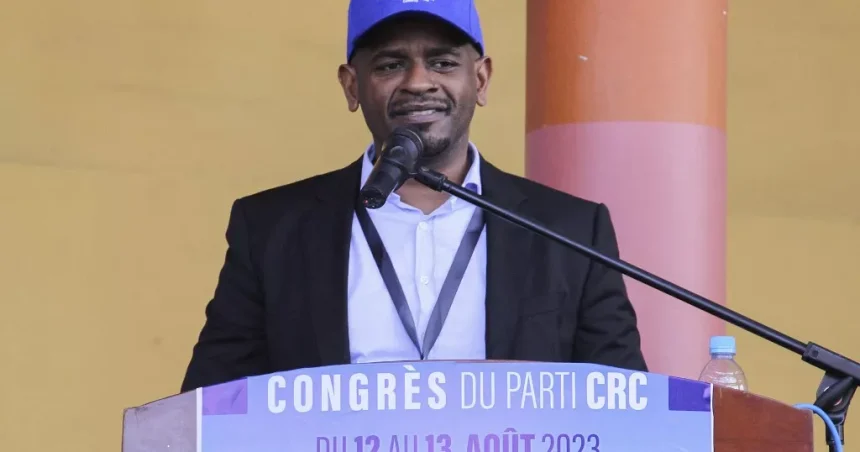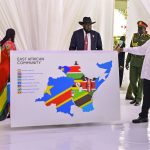Published on 24/01/2025
Comoros President Azali Assoumani declared his plan to transfer power to his son Nour El Fath in 2029, fueling critics’ claims of dynastic ambition and a tightly controlled political legacy.
Assoumani was elected president for a third consecutive term a year ago, following a disputed election in which his opponents made accusations of voter fraud.

He cannot run again in 2029, but has already begun preparing his succession, telling his supporters on Thursday that when the time comes for him to leave power, “I will place my son to replace me as head of the state and the party”.

Last October he put his son El Fath in charge of coordinating government affairs and granted him sweeping powers over the cabinet.
“Azali has handed his son presidential and constitutional prerogatives,” Said Larifou, a lawyer and politician in exile, told RFI at the time. “He has clearly concentrated all the powers and governance of the Comoros to his family.”
El Fath has yet to respond to the latest announcement, but previously said that Comoros – a group of three islands in the Indian Ocean, off East Africa – is not a monarchy.
Assoumani’s ruling party decisively won parliamentary elections this month, however only 16 percent of registered voters turned out after opposition parties called for a boycott.
“With this statement, he has simply made official what we already knew,” said Abdallah Mohamed Daoudou, a spokesperson for the opposition coalition.
“But Azali is deluding himself, the Comorian people and politicians will not accept the installation of a dynastic power or a monarchy in the Comoros,” he told media.
Constitutional reform
Comoros has a population of around 860,000. The most recent World Bank report on the country found 45 percent of the population were living just below the national poverty line.
The archipelago has witnessed around 20 coups or attempted coups since gaining independence from France through a referendum in 1974.
Assoumani first came to power in 1999 through a coup and has won four elections since 2002. He left politics in 2006, but made a comeback with a presidential win in 2016.
Constitutional reforms in 2018 extended a requirement that the presidency rotate among the three main islands from every five years to 10.
El Fath would therefore not be eligible to replace his father at the end of the presidential term in 2029 without another change to the constitution.








